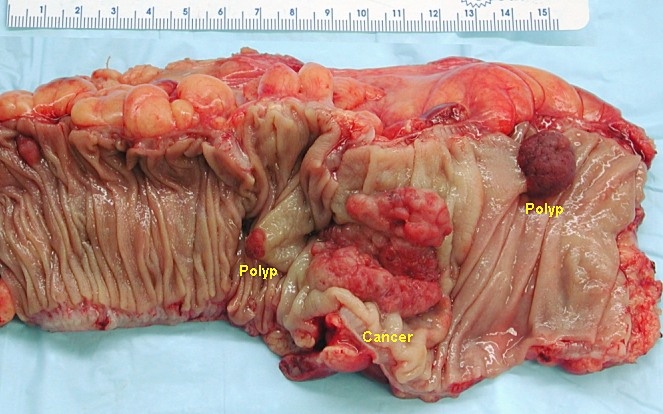Research has linked a type of colon cancer to disequilibrium in the gut that causes chronic inflammation and destruction of the mucosal barrier. [1] Now it is emerging that delta-9-tetrahydrocannabinol (THC) has a role to play in colitis-associated colon cancer.
Research [1] published in September 2020 revealed the effects of THC on colon cancer and the pathways involved (both innate and adaptive). Researchers from the University of South Carolina School of Medicine used a mouse-model study to investigate the effects of THC on colitis-induced colon cancer.
They induced colon cancer in mice using a well-established model associated with colitis, namely the azoxymethane (AOM) + dextran sulfate sodium (DSS) model for colorectal tumor formation. They further studied the mechanism of action using an anti-CD40 model, which causes disease independent from gut condition.
The effects of THC on initiation and progression of colonic cancer were monitored.
The mice that were given THC treatment did not develop colonic cancer; neither did they register an increase in spleen size. They also lost less weight compared to the control group. Upon further investigation (colonoscopy and staining), it was apparent that the THC-treated mice did not exhibit marked inflammation compared to the group that did not receive THC treatment.
Different mechanisms come into play here.
For one, THC’s weak agonism on CB2 receptors [2] can inhibit oncogenic (tumor-causing) IL-22, which is one of the factors in colon cancer oncogenesis [3].
THC upregulates some factors that potentiate the effects of T regulatory cells (Tregs) that appear to have gut protective benefits and play a role in building immunity against diseases. Additionally, through CB2 receptors, THC suppresses antigen-presenting cells (APCs) and consequently hinders the release of oncogenic IL-22.
From the study, it appears that through CB2 receptors, THC can help restore gut homeostasis and prevent chronic inflammation. By limiting colitis, THC helps prevent colitis-induced colon cancer.
The researchers concluded that THC slows down the progression of colonic inflammation and hence inflammation-induced colon cancer by “provoking coordination between APCs and Tregs.”
That said, the role of IL-22 has been a bone of contention among scientists. It appears to have both gut-protective and gut-destructive properties. [1]
Further investigation is needed to give clear direction on the effectiveness of THC in supressing colitis-induced colonic cancer in humans.
Image Source
Emmanuelm, Wikipedia, CC BY 3.0
References
- Becker W, et al. Activation of cannabinoid receptor 2 prevents colitis-associated colon cancer through myeloid cell de-activation upstream of IL-22 production. iScience, 2020;23(9):101504. Journal Impact Factor: 4.447
- Pertwee R. The diverse CB1 and CB2 receptor pharmacology of three plant cannabinoids: Δ9-tetrahydrocannabinol, cannabidiol and Δ9-tetrahydrocannabivarin. British Journal of Pharmacology. 2008;153:199-215. Journal Impact Factor: 7.73, Times Cited: 937 (Semantic Scholar)
- Sun D, et al. Th22 cells control colon tumorigenesis through STAT3 and Polycomb Repression complex 2 signaling. Oncoimmunology. 2015;5(8):e1082704. Journal Impact Factor: n/a, Times Cited: 18 (Semantic Scholar)








